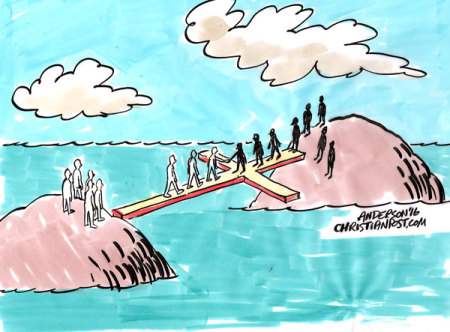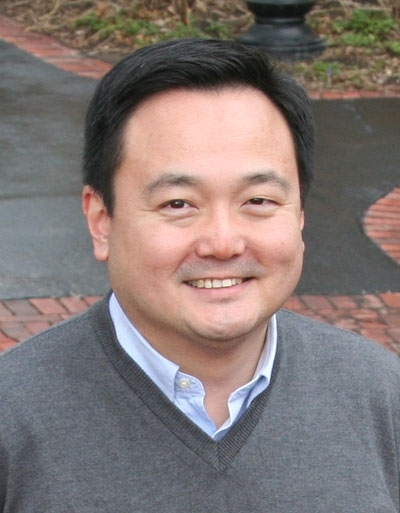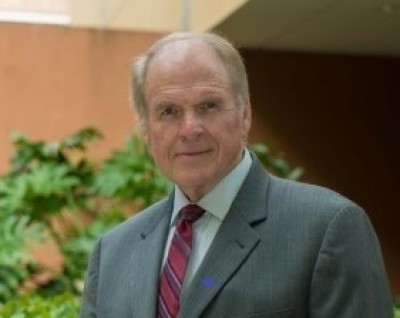Americans Becoming Less Religious Yet More Racist?

Secular liberals are observing that, contrary to hopes of a more tolerant secular age, racial tensions worsen as more Americans ditch Church.
In an Atlantic article titiled "Breaking Faith" from the upcoming April 2017 edition, contributing editor Peter Beinart wrote that many believed that bitter cultural clashes would decrease as the United States became less religious. Yet it turns out that the clashes are not dissipating after all; they are just centered on other things.
"Secularism is indeed correlated with greater tolerance of gay marriage and pot legalization. But it's also making America's partisan clashes more brutal," he said, highlighting the rise of the alt-right and Donald Trump. But as more and more Americans leave organized religion, Beinart continued, "they haven't stopped viewing politics as a struggle between 'us' and 'them.' Many have come to define us and them in even more primal and irreconcilable ways."
Theologians who spoke with The Christian Post say this is what happens when people lose sight of transcendent truths and exchange biblical truth for American civil religion.

Soong-Chan Rah, professor of evangelism and church growth at North Park University in Chicago believes that the intolerance of which Beinart speaks has been in part fueled by the troubling phenomenon of Christians who often unwittingly view their faith through a nationalistic lens.
The blurring of the lines between sound Christian theology and this civil religion are part of what Rah calls Western Christianity's "cultural captivity," Rah said in an interview with The Christian Post Friday. Rah is the author of the 2009 book The Next Evangelicalism: Freeing the Church from Western Cultural Captivity, which explores this in depth.
Beinart noted that religious attendance is down among Republicans, referencing data from Public Religion Research Institute (PRRI). In fact, the number of white Republicans with no religious affiliation has almost tripled since 1990 and that kind of shift faciliated Trump winning the GOP nomination, he argues. In other words, the "secularism" to which Beinart refers includes many American "evangelicals" who don't go to church anymore, and are Trump's strongest supporters.
Rah told CP that when people dispense with any semblance of a solidly biblical Christian faith, the civil religion can still linger and its language can be manipulated and co-opted by political movements with values at odds with the Bible. And even sincere Christians can get sucked into it if they are not watchful, he added.
Rah tweeted Wednesday: "Only America," "America First," and "Make America Great Again" is incompatible with But seek first the KINGDOM of GOD and His righteousness."
"Only America," "America First," and "Make America Great Again" is incompatible with But seek first the KINGDOM of GOD and His righteousness
— Soong-Chan Rah (@profrah) March 16, 2017
Being the fallen creatures that humans are, "we very much have the capacity to take something that is good and corrupt it into something that is evil," Rah said.
By contrast, he continued, "true religion should and would confront these broken ideals. And that's the failure right now, where the lines have become so blurred what I hope are well-intentioned, well-meaning Christians are so caught up in the civil religion narrative that they would tolerate this alt-right dysfunction and racism."
"This can happen on the right and the left," he added, "civil religion is not discriminatory,"
but adds he is concerned about the right-wing movements afoot today in the United States.
But when conservatives disengage church they do not become more tolerant but "become intolerant in different ways," Beinart writes, citing research that reveals that evangelicals who do not regularly attend church as less hostile to gays than active churchgoers. But those non-churchgoing "evangelicals" are "more hostile to African Americans, Latinos, and Muslims," he explained.

According to a Baptist pastor from Texas who is a former journalist that won an Associated Press award in 1973 for his coverage of the Birmingham civil rights crisis, something higher is often lost whenever prejudice toward other human beings manifests.
"The thing about very serious commitment to a church community is that one is challenged to take a transcendent view of relationships," said Wallace Henley, Senior Associate Pastor at 2nd Baptist Church in Houston, Texas in a phone interview with CP Friday. Such were the challenges he saw firsthand decades ago while covering events at white Southern churches, including one at which he told CP he was threatened, where they were wrestling through what the Bible said versus what was culturally engrained.
With respect to race relations, "if there is no transcendent orientation in my thinking, in my forming of values, in my setting parameters for relationship, then there is nothing to pull me out of my own imminent self-interests and preferred values. So, consequently, there is no real challenge to lift me out of myself and my tribal need."
When that sense of the transcendence disappears people sink into self-focused existence that identifies only with those who think and look like them, he added.
Jeff Walton, communications director for the Washington D.C.-based Institute on Religion and Democracy, said that it is important to remember that churches are essentially "messy families" and even healthy ones are going to have people who worship there that hold a variety of viewpoints.
"When people are within [such a] context they are meeting with, interacting with and forming healthy relationships with people of different backgrounds and political persuasions," Walton said in a CP interview.
"When you take people out of congregations, and out of group institutions in general, they become more isolated and self-segregated where they aren't being presented with as many opportunities to get to know people of different views and why they hold those viewpoints,"
he said.





















